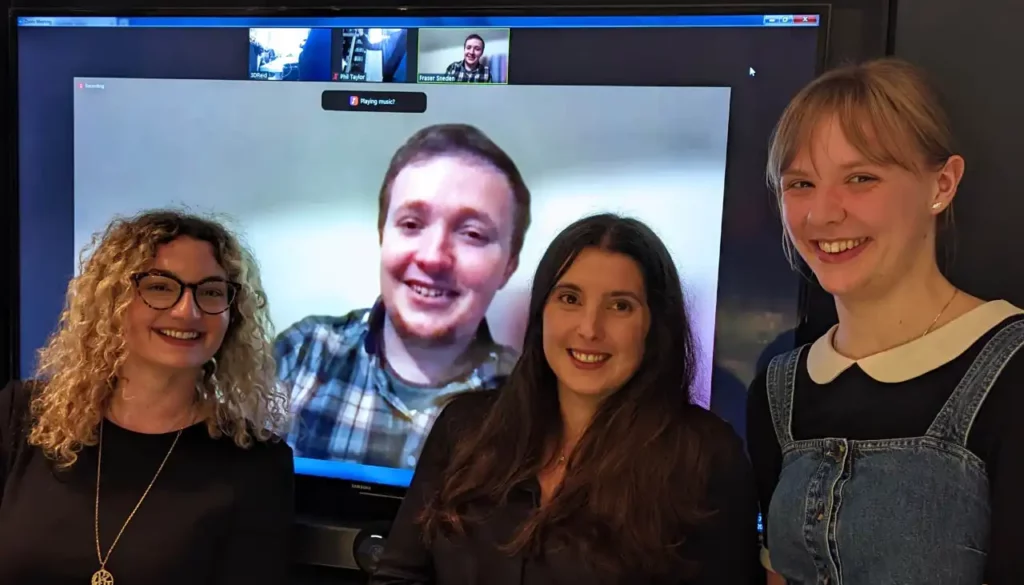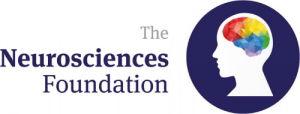On Thursday 3rd November 2022 young researchers undertaking work supported by the Neurosciences Foundation gave presentations to the Trustees.

They are (left to right):
- Dr Katerina Pappa – now working as a post-doctoral researcher at the University of Glasgow.
- Fraser Snedden (who took part by Zoom as he had Covid) – who undertook his research in the stroke unit in Glasgow and has just started a new job in the stroke unit in Edinburgh.
- Cristina Lumbreras Perales who is doing a PhD with Prof Hilary Carswell at the University of Strathclyde in collaboration with the University of Glasgow.
- Ellen Poot who is doing a PhD at the University of Edinburgh supervised by Prof Alison Hulme.
The medical conditions that they are working on are:
- Brain injury (resulting from trauma or a stroke); can rehab techniques be developed to improve recovery of working memory and goal management?
- Stroke caused by reduced blood supply; can imaging the properties of blood vessels in the neck inform us about stroke risk and recovery potential?
- Stroke caused by bleeding in the brain; can a material derived from worm-like parasites reduce damaging inflammation that can lead to a stroke?
- Cancer in the brain. Glioblastoma is an aggressive type of brain tumour with very short survival times. Can drugs that promote the development of an immune response to this cancer be developed and designed so that they get into the tumour?
The contributions to this work from the Neurosciences Foundation are small in relation to global research funding, ranging from £10K to £40K, but they are essential in getting new ideas off the ground. The results of this early work help the researchers to get larger grants. All four presentations by the young researchers were delivered with enthusiasm and extreme clarity, explaining in lay terms how the work is likely to benefit patients, and what skills are being learning from the experts in their respective teams. This is how Cristina summed it up:
“My next move will be to publish the results and then go on to acquire my own grant funding. This will lead to a career either in academia or in industry. I am acquiring skills in national and international networking and collaboration, problem solving, and public engagement, while gaining advanced scientific knowledge.”
Following recent successful developments in the treatment of MS and Parkinson’s Disease by students supported by the foundation, it was rewarding for the Trustees to see the progress that is now being made in reducing the risk of stroke, improving recovery from brain injury, and treating brain cancer by these young researchers in Centres around Scotland.

